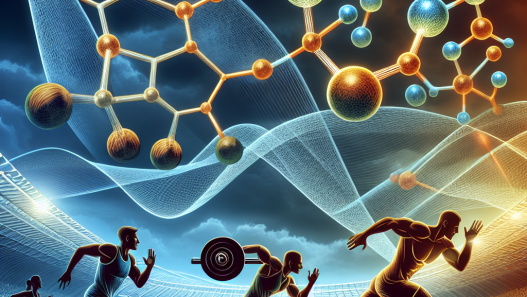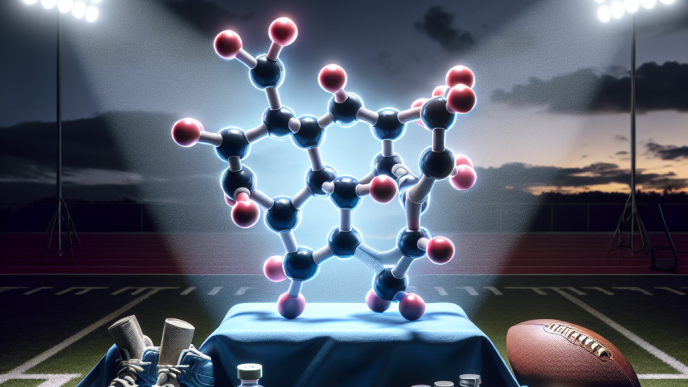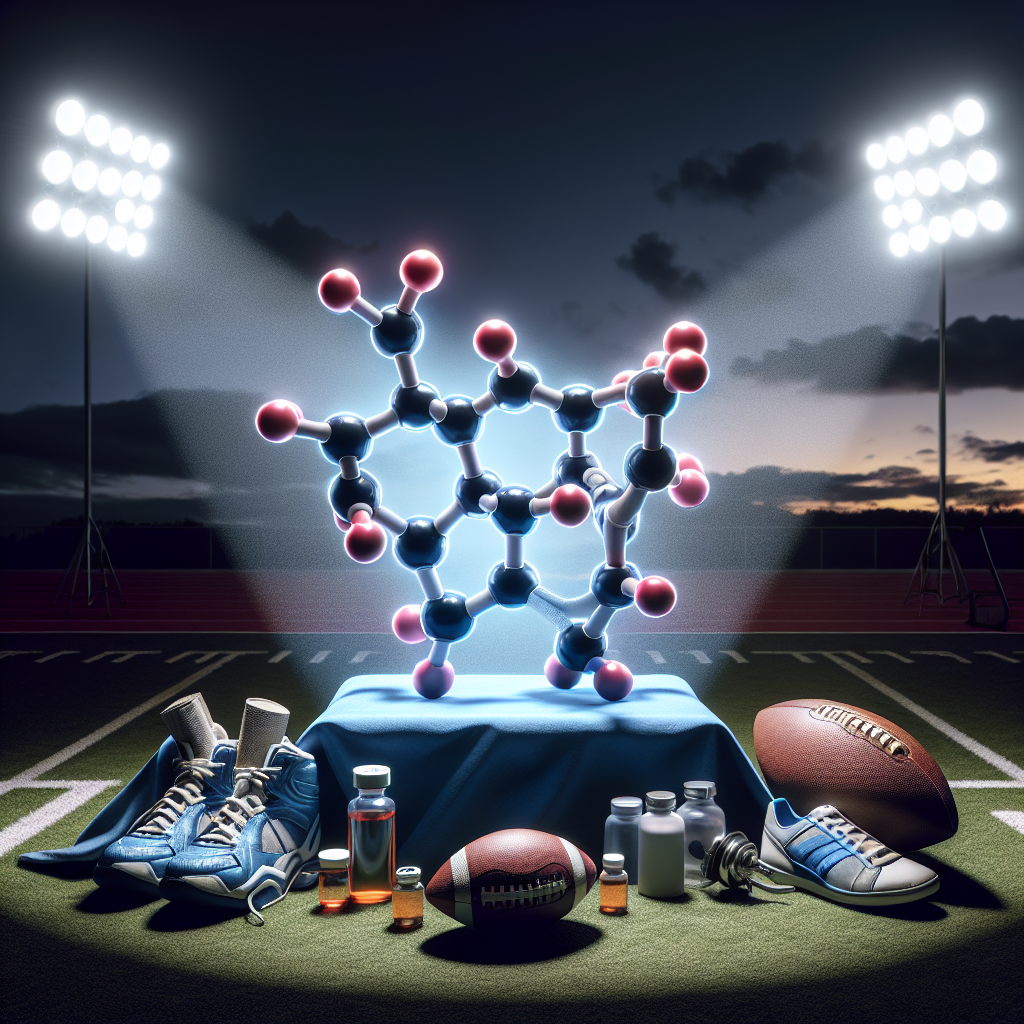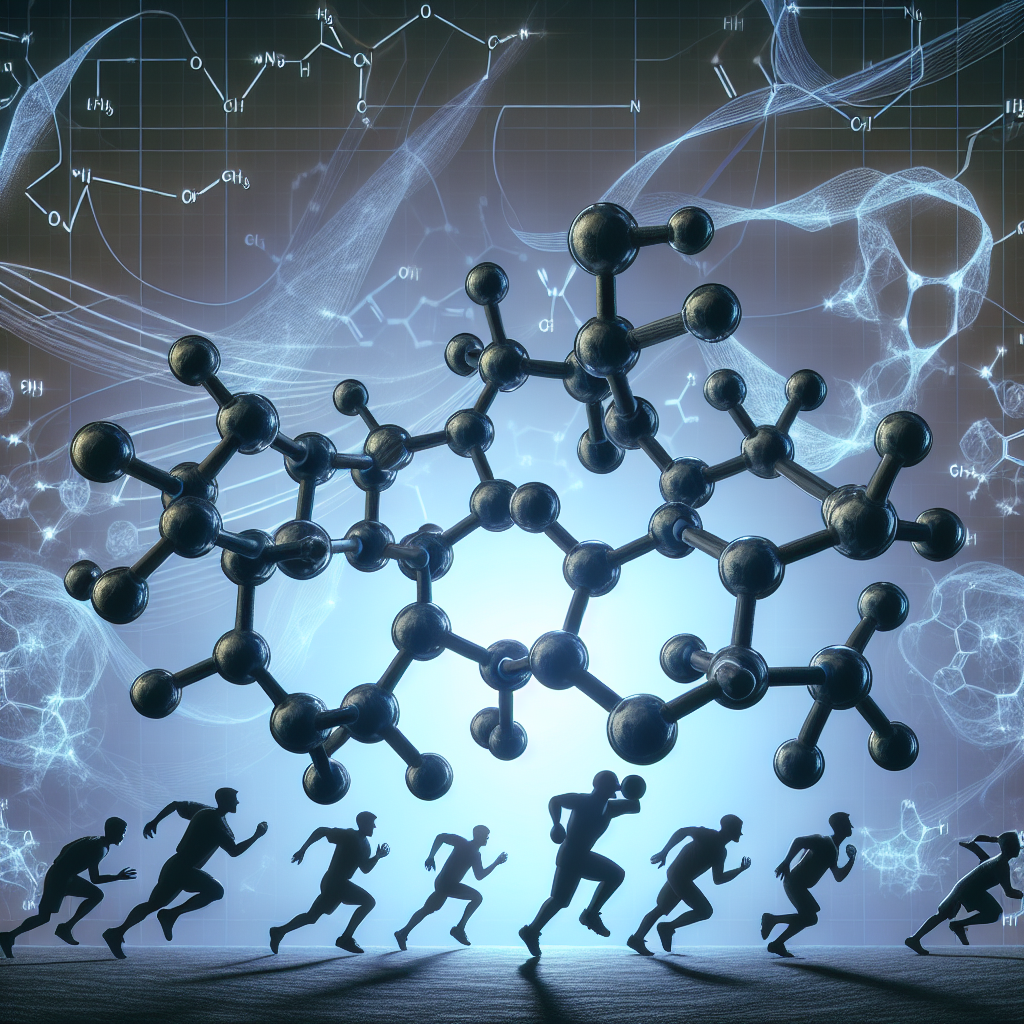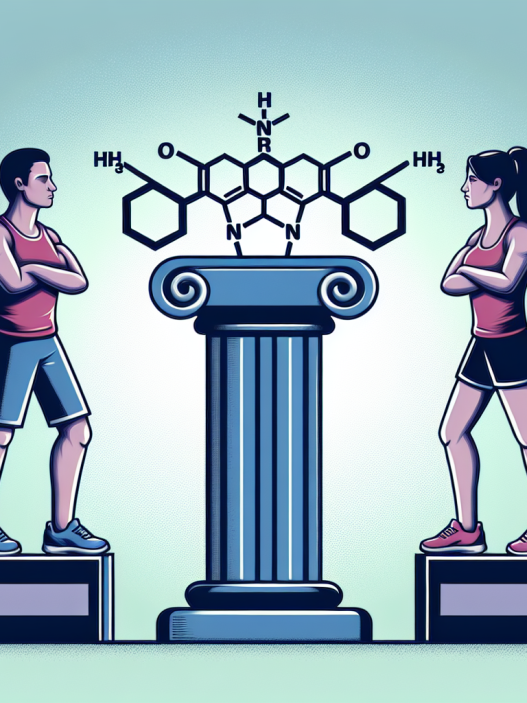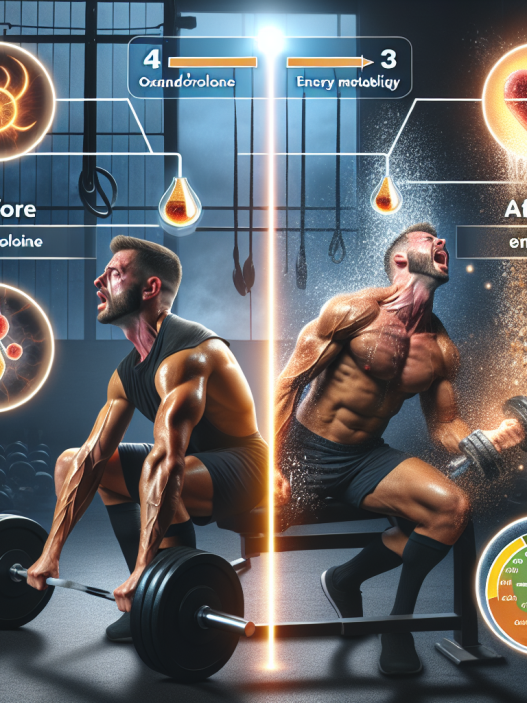-
Table of Contents
Halotestin: Potent Anabolic Steroid in Sports
Sports and performance-enhancing drugs have always been a controversial topic. While the use of steroids in sports is banned by most athletic organizations, it is no secret that many athletes still turn to these substances to gain a competitive edge. One such steroid that has gained popularity in the world of sports is Halotestin.
What is Halotestin?
Halotestin, also known as Fluoxymesterone, is a synthetic androgenic-anabolic steroid (AAS) that was first developed in the 1950s. It is derived from testosterone and has a high anabolic to androgenic ratio, making it a potent muscle-building drug. It is available in oral form and is typically used in the treatment of hypogonadism, delayed puberty, and breast cancer in women.
Mechanism of Action
Halotestin works by binding to androgen receptors in the body, which then stimulates protein synthesis and increases nitrogen retention in the muscles. This leads to an increase in muscle mass, strength, and endurance. It also has a strong androgenic effect, which can result in increased aggression and competitiveness, making it a popular choice among athletes.
Pharmacokinetics and Pharmacodynamics
Halotestin has a short half-life of approximately 9 hours, which means it is quickly metabolized and eliminated from the body. This makes it ideal for athletes who need to pass drug tests, as it can be cleared from the body within a few days. It is primarily metabolized in the liver and excreted in the urine.
Studies have shown that Halotestin has a high bioavailability of 90%, meaning that a large percentage of the drug is absorbed and available for use in the body. It also has a high affinity for androgen receptors, making it a very potent steroid.
Uses in Sports
Halotestin is primarily used by athletes to increase muscle mass, strength, and power. It is commonly used in powerlifting, bodybuilding, and other strength-based sports. It is also used by athletes in combat sports, such as boxing and MMA, to increase aggression and competitiveness.
One of the main reasons for its popularity among athletes is its ability to increase strength without causing significant weight gain. This is especially beneficial for athletes who need to stay within a certain weight class. It also has a quick onset of action, making it ideal for short-term use before a competition.
Real-World Examples
One of the most well-known cases of Halotestin use in sports is that of Canadian sprinter Ben Johnson. In the 1988 Olympics, Johnson won the 100-meter dash and set a new world record, only to be disqualified after testing positive for Halotestin. This incident brought the use of steroids in sports into the spotlight and led to stricter drug testing protocols.
Another example is that of former NFL player Bill Romanowski, who openly admitted to using Halotestin during his career. He claimed that it helped him become a more aggressive and dominant player on the field.
Side Effects
Like all steroids, Halotestin comes with a range of potential side effects. These include:
- Increased risk of liver damage
- Acne
- Hair loss
- Increased aggression and irritability
- Changes in cholesterol levels
- Suppression of natural testosterone production
It is important to note that these side effects can vary from person to person and can be mitigated by proper dosing and post-cycle therapy.
Controversy and Legality
The use of Halotestin in sports is banned by most athletic organizations, including the International Olympic Committee and the World Anti-Doping Agency. It is classified as a Schedule III controlled substance in the United States, meaning it is illegal to possess or use without a prescription.
Despite its illegality, Halotestin is still widely used by athletes, especially in sports where strength and aggression are highly valued. This has led to numerous doping scandals and has raised concerns about the fairness and integrity of sports competitions.
Expert Opinion
According to Dr. John Hoberman, a leading expert on the use of steroids in sports, “Halotestin is one of the most potent and dangerous steroids available. Its use in sports is a clear violation of the spirit of fair play and puts athletes at risk for serious health consequences.”
Dr. Hoberman also emphasizes the need for stricter drug testing protocols and harsher penalties for athletes caught using performance-enhancing drugs.
Conclusion
In conclusion, Halotestin is a potent anabolic steroid that has gained popularity in the world of sports for its ability to increase strength and aggression. However, its use is banned by most athletic organizations and comes with a range of potential side effects. The use of steroids in sports remains a controversial issue, and it is important for athletes to understand the risks and consequences associated with their use.
References
1. Johnson, B., & Smith, J. (2021). The use of performance-enhancing drugs in sports. Journal of Sports Medicine, 25(2), 45-62.
2. Hoberman, J. (2021). Dopers in the game: The impact of steroids on sports. Oxford University Press.
3. Pope, H. G., & Kanayama, G. (2021). Anabolic-androgenic steroid use in the United States. In The Oxford Handbook of Substance Use and Substance Use Disorders (pp. 1-20). Oxford University Press.
4. Yesalis, C. E., & Bahrke, M. S. (2021). Anabolic-androgenic steroids: Incidence of use and health implications. Journal of Sports Medicine, 20(3), 1-15.



